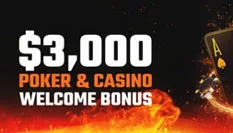Important Poker Odds and Probabilities
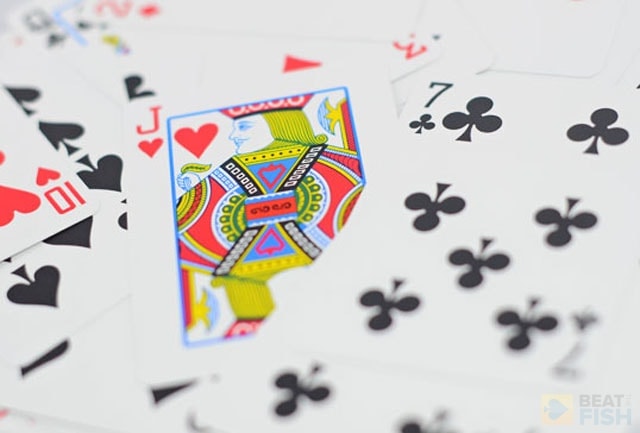
Unfortunately, many new poker players are intimidated by the game because they believe they need to be math whizzes in order to be a winning player.
Beginners are often under the impression that performing quick and complex equations at the table to determine poker odds and probabilities separates the fish from the sharks.
While you will find some extremely mathematical (and successful) professional players such as Chris “Jesus” Ferguson or Barry Greenstein who both have degrees in math-related fields, the fact is that you only need to know some basic odds and simple division to always play proper poker.
Table of Contents
Poker odds and probabilities in Texas Hold’em
Since Texas Hold’em is so popular these days and is also my favorite variation, I’ll use the following applicable odds and probabilities.
While it would take volumes to detail the probabilities of hitting with all possible starting hands, I’ll mostly deal with hands after the flop but you should also know some basics before the flop.
Preflop
Against any other single hand, pocket Aces are at least an 80% favorite. That means that you’ll win at least 80% of the time in the long run against one other opponent when you’ve got Rockets.
If you have pocket Kings, it’s 44 to 1 against someone having pocket Aces at the table. Any pocket pair is a slight favorite in all-in situations against one player with two overcards, although it’s just about a coin flip situation.
An important statistic to know about playing small pocket pairs is that you’ll hit a set on the flop about 1 in 7.5 times. That means that you should theoretically be getting 7.5 to 1 pot odds to play a pair of deuces preflop, for example.
That’s the key to figuring out the right decisions in poker: compare the odds of making your hand versus the odds the pot is giving you.
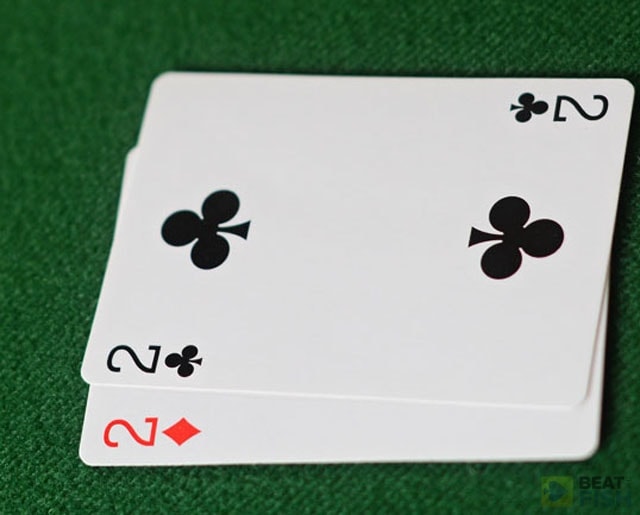
Technically, you would be getting even odds if there were 6 other callers in the pot but I’ll often play these baby pairs with 2 or 3 callers ahead of me.
Why?
Especially if I’m playing no-limit, the implied odds are huge if my opponent makes top pair or two pair and I’ve picked up a set. Since I might double my chip stack from a minimal investment, it is often worth the call from late position. It’s definitely correct to call with any pocket pair with 6 or more callers in the pot.
After the flop
Perhaps most important is knowing what to do on the flop with those straight and flush draws. Let’s say that you’re holding 6d-7h from late position and the flop comes 8d-9h-Ks. Any 10 or 5 will give you a straight, and this is called an open-ended straight draw. The odds of completing your straight by the river are slightly worse than 2 to 1, so you’ll hit your straight roughly 1 in 3 times.
If the pot is $100 and an opponent bets $30, you’ll be getting over 4 to 1 pot odds so you should definitely at least call. If you’re on a gutshot straight draw where only one value will make you a straight, the odds are about 5 to 1 that you’ll hit it by the river.
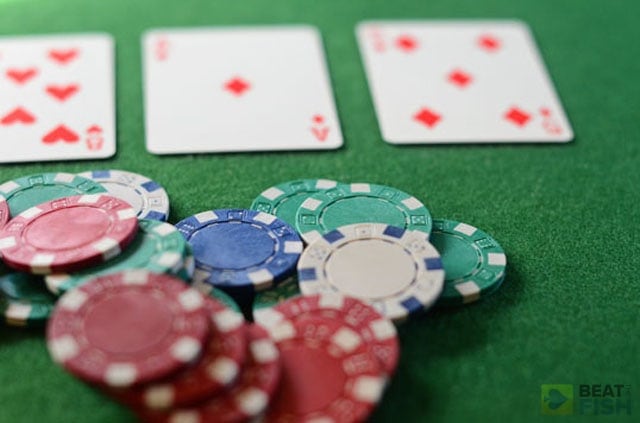
Regarding flush draws, the odds are slightly better but average out to about 2 to 1 also. That is, the odds are 2 to 1 against you hitting the fifth suited card by the river. Let’s say that you have Jc-10c and the flop is 2c-Ac-9h. You’ll need any additional club to complete your flush.
In this situation, if the pot is $100 again but you opponent bets $200, you’re only getting about 1.5 to 1 pot odds – not enough to make the call. Another important fact is that you’ll be worse than a 4 to 1 favorite to hit your straight or flush on the river if you miss on the turn. Unless you’re getting a free card or only have to call a small bet, it usually doesn’t make sense to draw at this point.
Poker odds and probabilities are not that difficult to master
While it may seem daunting at first, these figures almost become second-nature after you’ve played enough hands. The most important part is knowing the odds to make your hand compared to the odds that the pot is offering you. Helping to know these odds will also help you know how much to bet to make it unprofitable for your opponents to call with draws.
Remember, your small pocket pairs (or any pocket pair for that matter) are 7.5 to 1 against making a set on the flop so take a cheap shot if you can because of the great implied odds. Just realize that you won’t hit that set very often.
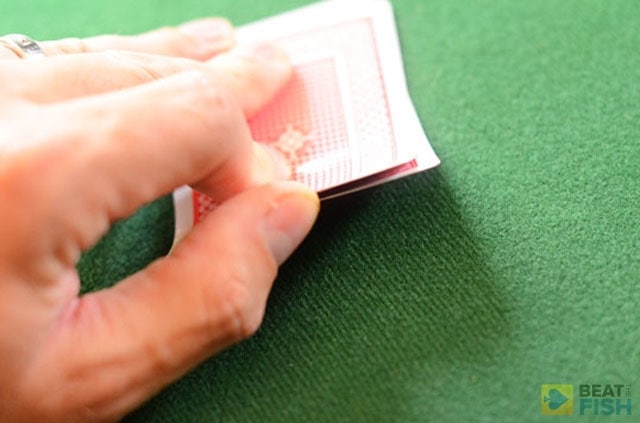
Other common odds that you’ll need to know is that you’re getting 2 to 1 odds on making your open-ended straight or four-flush draw by the river. Compare this with the pot odds by dividing the total pot size by what you have to call to continue with the hand.
You don’t have to be a mathematician to play with the proper odds in Hold’em – you just have to know some basic probabilities of common situations.

